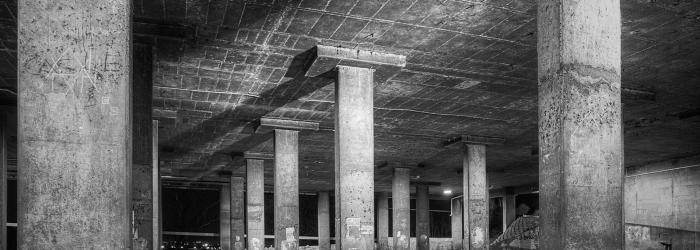Abbahall Ltd v Smee – Court of Appeal

This matter, in which Wilmot’s litigation successfully represented Abbahall before the Court of Appeal, involved a rare yet problematic ‘flying freehold’. A flying freehold exists when a freehold overhangs or underlies another freehold. Since they rarely have adequate rights of support from the structure beneath or rights of access to make repairs (and subsequently are rarely accepted as security for a mortgage), flying freeholds are rarely created willingly.
In this instance, the Defendant, Ms Smee, acquired the flying freehold above Abbahall’s property by way of ‘squatters rights’, meaning the usual covenants and easements between neighbors were not present. Her roof protected his property.
Ms Smee allowed the roof to fall into serious disrepair, which caused water to leak into Abbahall’s property. There was a real danger of falling masonry. She refused to repair the roof or allow Abbahall access to make such repairs. Abbahall obtained a mandatory injunction compelling Ms Smee to grant access to her roof so that repairs could be carried out. The injunction did not, however, specify who was required to pay for those repairs, which were likely to amount to some £25,000.
At first instance, the judge ruled that Ms Smee was only liable for 25% of the repair costs, despite the fact that it was her roof. In coming to this decision, the court considered the respective financial positions of the parties and decided that since Ms Smee was on benefits, it was reasonable for her to pay less than Abbahall.
Wilmots Litigation appealed the decision on behalf of Abbahall and the Court of Appeal overturned the judge’s decision.
In the leading judgment, Munby LJ ruled that in the case of a flying freehold, where the roof served equally to protect both the claimant’s and the defendant’s premises, common sense, common justice and reasonableness between neighbours all suggested that those who were to take the benefit of the works should also shoulder the burden of paying for them.
In an extensive judgment that analysed the old and somewhat complex law surrounding the reasonable obligations neighbours owe to one another, Munby J found that it was not reasonable as between neighbours for Miss Smee to go on living in a leaking property which was damaging her neighbour’s property, all the time doing nothing to contribute to the cost of remedying things because she chose to live in a property she could not afford to maintain.
There are several important principles that emerged from this case:
1. If you live over or under someone else’s premises, the law imposes duties on you if you have no written obligations.
2. If you benefit from someone else’s necessary work you may well be required to contribute towards the costs
3. A party is not obliged to pay a proportion for repairs unless the respective opposite party also pays his proportion.
Although the financial positions of the parties may affect what is ‘reasonable’ for a party to do in all the circumstances, the financial positions of the parties will not always be relevant. The relevant circumstances in this case were not that Ms Smee was poor, but that she chose to live in a flat under a roof which protected not only her but also her neighbour.
4. If you can’t afford your obligations, that will be no defence.
Practically, in order to avoid these situations you should:
– Establish what your neighbours obligations are before you buy
– Ensure that when purchasing property, you have sufficient rights of access for repair
– Ensure that there is agreement as to who bears the burden of repairs for items that are jointly beneficial between you and your neighbours and in what proportion.
– You should always bring up these issues with your conveyancing solicitor and obtain their advice when purchasing property.
